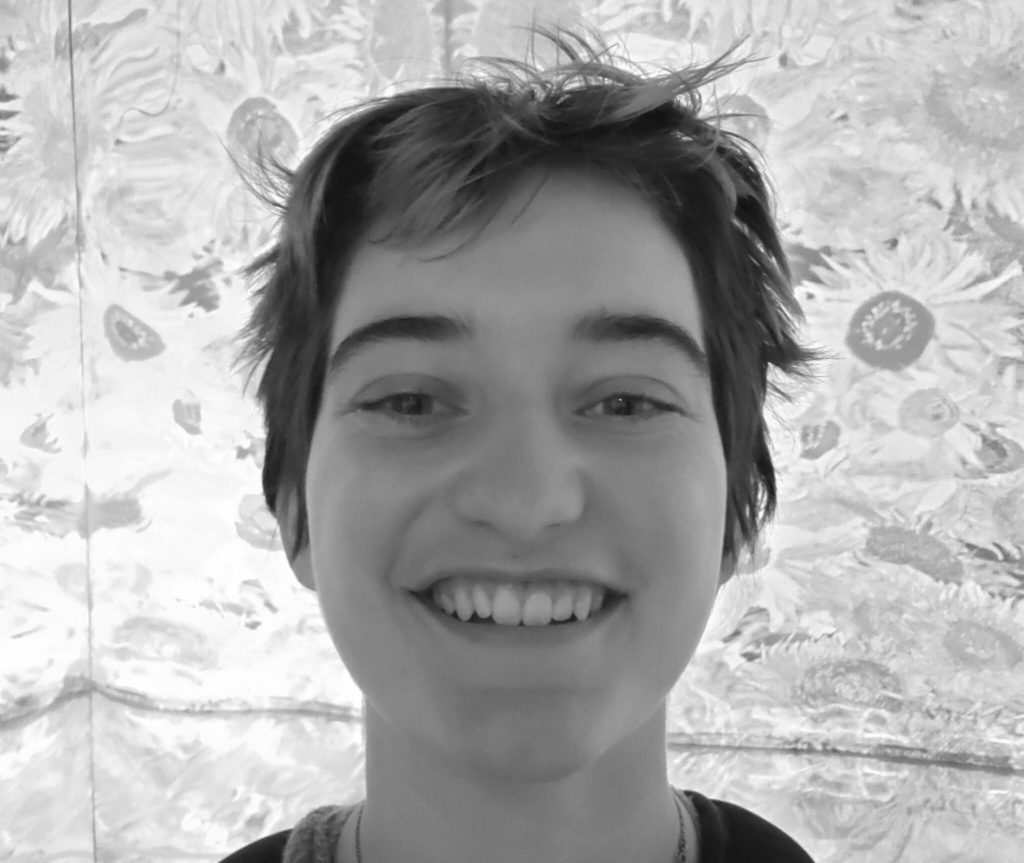Mikayla Thompson accepted for NSF Research Experience for Undergraduates
Socio Lab member Mikayla Thompson (Linguistics major) has been accepted for a competitive NSF Research Experience for Undergraduates (NSF-REU) opportunity this summer.

Mikayla will spend 8 weeks at the University of Oregon as part of its initiative “Increasing American Indian/Alaska Native Perspectives in Field and Experimental Linguistics“. The REU includes instruction on topics in descriptive linguistics and experimental linguistics, hands-on research in two labs, and input from local Indigenous educators and researchers.
Mikayla shared why she chose this program and her goals and hopes:
“This opportunity to study language revitalization methods at the University of Oregon stood out to me initially because of the particular nature of the classes and research. The focus on language revitalization processes in relation to my compiled knowledge of linguistics is exactly what I would like to do post-graduation. I intend to utilize the knowledge presented in these classes and fieldwork to better inform myself of methods of preserving and reviving Indigenous American languages. As a descendent of the Cherokee Nation, I know quite intimately the degree to which language repression and subsequent language endangerment has influenced Indigenous communities, and what it means for the future. I hope to apply what is learned at the University of Oregon to my own communities, so that I may more deeply familiarize myself with my ancestral language, Cherokee, and to eventually pass it down to others in my communities.”


